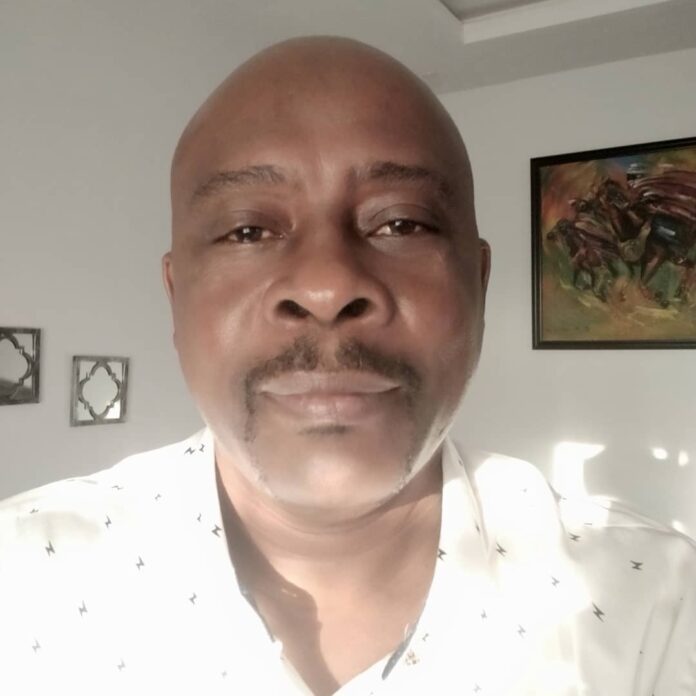Nigeria and the perpetuality of power problem, by Bala Ibrahim
Anyone interested in Nigeria would admit that the country is deeply involved in a difficult or controversial situation. In simple language, one can say it is in the eye of the storm, particularly on the issues of power supply, or the supply of electricity, the supply of fuel, and until recently, the issue of instability in leadership. Thank God, since 1999, when the country moved into democracy again, there has been a balance of mind, but that balanced mind situation is increasingly getting threatened by the instability of electricity.
The leadership of President Bola Ahmed came with the additional promise of Renewed Hope, a hope that has become the subject of query, interrogation or constant criticism by those in the opposition. That is normal and what brings out the beauty of democracy. It gives people the right to say, positive, or negative say.
Of all the challenges of Nigeria, which have a common denominator in the name of corruption, none is as overwhelming or distressing and upsetting as the issue of electricity, because it is the foundation for building the structures of development. Although electricity supply has improved in recent years, compared to the dark days of the previous regimes, the new trend of grid collapse and the conflicting responses from those in charge, are pushing some people to a heart-breaking situation.
Long before Nigeria gained independence, records say, the colonial masters established the Niger Dam Authorities (NDA). Shortly after independence, the NDA and the Electricity Corporation amalgamated to form the Electricity Corporation of Nigeria (ECN).
The Corporation assumed responsibility for electricity generation and distribution for the country in 1951. The central government consolidated and managed all the revenue from electricity supply operations into a single account.
Power was generated sufficiently and distributed efficiently. The account was also managed well, as a source of revenue, for the benefit of the country and the consumers. The situation continued like that up till the arrival of independent Nigeria.
Immediately after the end of the 1967-1970 Nigerian civil war, the management of ECN changed its name to the National Electric Power Authority or NEPA. Some may disagree with me, but I say, Nigeria’s electricity problem began with the coming of NEPA, an acronym that was teased or mocked to mean, Never Expect Power Always. Electricity became a scarce commodity in Nigeria with the coming of NEPA, and that problem has since become perpetual.
Records say with just over 4,000 megawatts supplying nearly 220 million people, the electricity access deficit stands at about 40% nationwide, and now, with the northern part of the country in total darkness, the picture is terribly darker. The rural areas are even worse off. Nearly 80% of the population in rural areas are off the power grid.
READ ALSO: Ambition without plans, by Suyi Ayodele
According to the International Monetary Fund (IMF), Nigeria has been downgraded on the prospects of growth for the year 2024 to 2.9%. Down from 3.3%. Power or electricity supply, which has since become a perpetual problem, is most likely among the critical factors for this downgrade.
With the coming of democracy in 1999, and the arrival of President Olusegun Obasanjo, who signed into law the Electric Power Sector Reform, the process of the unbundling of NEPA started and led to the formation of the Power Holding Company of Nigeria (PHCN).
But was the PHCN a suitable and sincere substitute? The answer is no, capital NO. Consequently, through another reform, the Electricity Reform Act of 2005, the PHCN was unbundled into 11 Distribution companies, 1 Transmission Company and 6 Generation companies.
This Reform Act gave birth to a number of Electricity Distribution Companies, including the one in Kano, KEDCO, that is literally distributing darkness. As far as Nigerians and the supply of electricity are concerned, the changes in nomenclature of the power suppliers or distributors, only mean changes in the names of the problems. The solution seems far from sight, as consumers take the shelter of solace in suffering. Suffering and smiling, so said Fela of the blessed memories.
As I write this article, seventeen out of 19 states in Northern Nigeria have been without electricity for upwards of two weeks, a situation that compelled the northern leaders to converge in Kaduna, where they registered their anger over the blackout. There are accusations and counter accusations going on, with some putting the blame on the doorstep of the northerners, who held power for the greater part of the life of the country.
Pursuant to the promise made by President Tinubu, to renew or rekindle the people’s hope, after summoning the Minister of Power, Adebayo Adelabu, and National Security Adviser (NSA), Mallam Nuhu Ribadu, to a meeting in the Villa, the President has expressed concern over the recent blackout in the northern region of Nigeria, and therefore directed the minister and relevant agencies to speed up the pace of work to restore electricity to all the affected states in the north.
According to a statement issued by the Presidency, Tinubu is saddened by the report of vandalism and wilful destruction of power infrastructure and other public assets, which caused the blackout.
So now, in addition to the previous problems on power, a new strain, in the name of vandalism, has been injected. And, unless it is cut short, power would remain a problem perpetually in Nigeria.
Ibrahim, a media advisor, writes from Abuja
Follow the Neptune Prime channel on WhatsApp:
Do you have breaking news, interview request, opinion, suggestion, or want your event covered? Email us at neptuneprime2233@gmail.com





